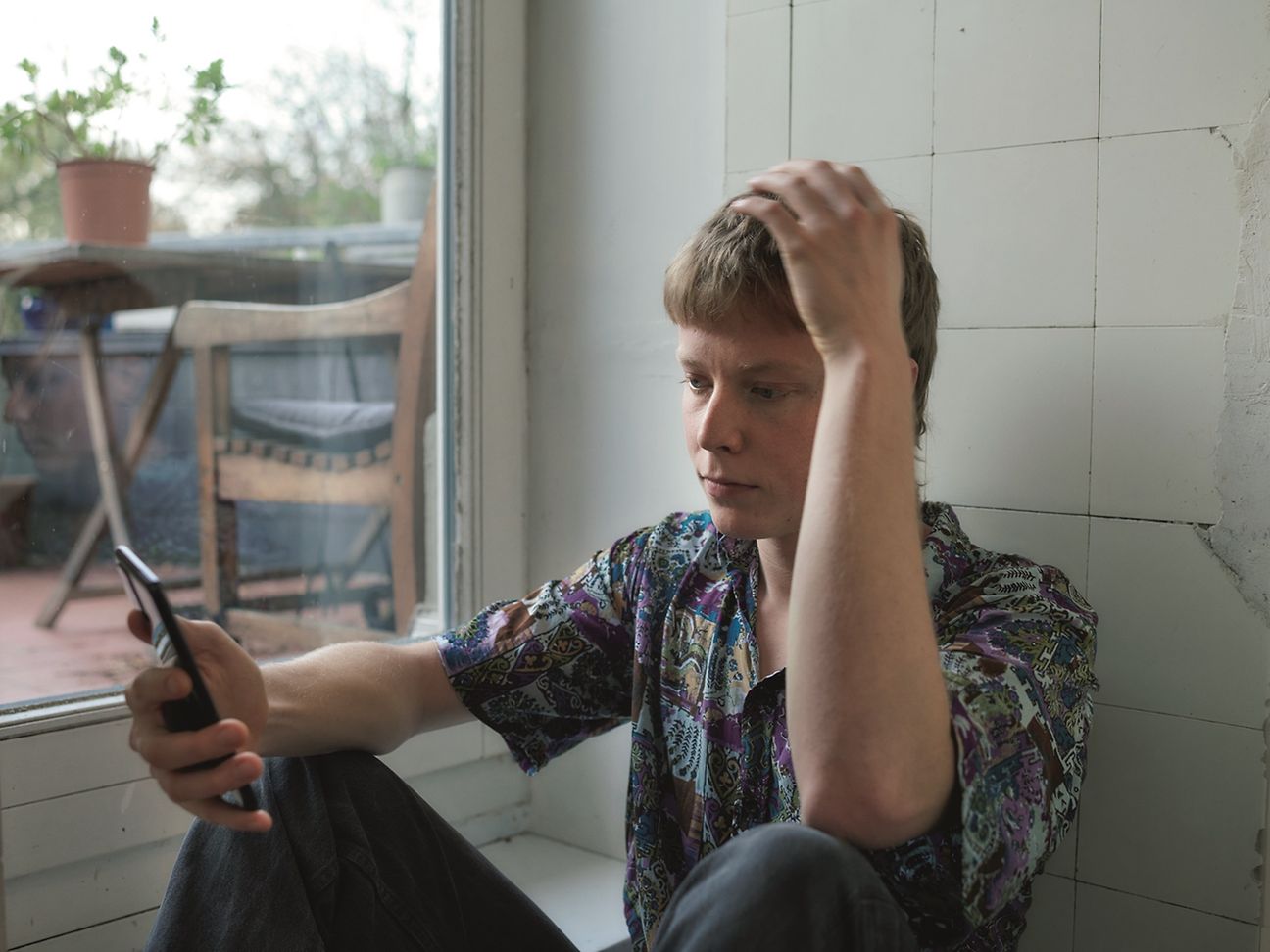

Cyberbullying: Suicide is never the solution
“You suck, loser!” “Kill yourself!” Jay, the protagonist of the current Deutsche Telekom campaign, faced insults like this on a daily basis. In the worst case, bullying can drive people to suicide. The association “Freunde fürs Leben” aims to prevent this. The organization provides information about depression and suicide, so signals can be spotted at an early stage and cries for help can be better identified.
Nearly 20 years ago, Diana Doko and Gerald Schömbs founded the association Freunde fürs Leben (Friends for Life). They had both lost beloved friends to suicide. As they were mourning, they discovered that perceptions of the illness of depression consisted of many preconceptions, incorrect information and stigmas. And that the victims and their loved ones were often left alone with their worries and fears. Grief gave way to determination. Doko and Schömbs, both communication experts, decided to lend their support to others. “Friends and family members often fail to act, due to lack of knowledge and fear of doing something wrong. It’s still a taboo to talk about depressive phases and suicidal thoughts in our personal interactions,” says Diana Doko, co-founder and chairperson of Freunde fürs Leben. She is calling for better education about depression and suicide – from the government and in schools as well. After all, personal crises and suicidal thoughts are widespread among adolescents.
Suicide is the second leading cause of death among young people
In Germany, someone takes their own life every 53 minutes; an attempt takes place every five minutes. That adds up to nearly 10,000 deaths by suicide in the country every year. Suicide is the second leading cause of death among young people (age 29 and under) – there were around 529 suicides in this age group in 2018. And 90 percent of the people who take their own lives suffered from mental illness, usually depression*. People who have bullying experiences in adolescence are at a higher risk of suffering depression. The impact of bullying or cyberbullying on mental health depends on many factors: how severe are the attacks? How strong is the victim’s personality? What is their social environment like?
As Diana Doko sees it, Jay from the Deutsche Telekom campaign is a typical example of how words can harm, leaving behind deep emotional scars. “Nobody can simply take hate and insults in stride. Bullying is upsetting – it can torment you, keep you awake at night, sap your energy, and in the worst case, affect your will to live. Psychological violence, in the form of insults, upsets everyone. But suicide is never the solution. Jay is an example that shows us that it’s possible to process even extreme negative experiences.”
Eight in ten victims express their suicide intentions ahead of time
From her years of work in the association, Diana Doko knows the importance of personal surroundings for preventing suicide. “Eight in ten victims express their suicide intentions ahead of time. There are a number of warning signs that indicate that someone might be suicidal.” If you notice that someone has announced plans for when, how, and where they want to take their life, if they start collecting pills, if they have attempted suicide in the past, or write a suicide note, you should recognize the signals and start asking questions. The “Friends for Life” have collected these and many other warnings signs on their website under How can you spot suicidal tendencies? (link to German website).
How can you help? The first and most important step is to listen to the victims and show patience and understanding. You should ask them about their specific suicidal thoughts. And you shouldn’t judge a friend for expressing the desire to end their own life; you should take them seriously. “A problem that you might simply laugh off could pose a major, even insurmountable challenge for someone else,” says Diana Doko. The important thing is to remain engaged and support the friend in their search for professional help.
A wide range of help is available
No one should feel left alone with their knowledge of a friend’s suicidal intent: parents, teachers, or counseling centers can provide support. In fact, a wide range of help is available: over the phone, online, or in person. Professional counselors are available to help victims in any type of crisis. (All links lead to German websites.)
Crisis hotline - Telefonseelsorge
Grief counseling – Nummer gegen Kummer
Helpline: Violence against women
Save me online
Youth Life Line
Weisser Ring victim support organization
How "Freunde fürs Leben" works
We often don’t speak about mental health until it’s too late. Freunde fürs Leben wants to change this. “We aren’t trained psychologists or a crisis aid organization. But we help raise awareness for mental health issues, like depression and suicide. Information is important, so victims of violence can be reassured that they aren’t alone and know where they can get help. That’s why we support the Deutsche Telekom campaign #NOHATESPEECH,” says Diana Doko. She, co-founder Gerald Schömbs, a small team of communication professionals, and many volunteers make up the core team of Freunde fürs Leben.
The association’s activities and information campaigns focus primarily on young people. It utilizes social media channels like Instagram and Facebook for its suicide prevention efforts, as well as printed pocket guides. Their YouTube channel frnd.tv and Kopfsalat podcast (Head Lettuce) feature expert talks, as well as celebrity visits. They talk about the highs and lows in life, about crises and mental health. As public figures, they speak up to show that everyone goes through crises and that it’s okay to talk about them.
With campaigns like 600 Lives and the Talk! art project, Freunde fürs Leben organizes interaction among victims, family members, artists, and politicians with their message of encouragement: talk about it! Depression and suicide aren’t taboo subjects – help is available.
*Source: European Alliance against Depression e.V. (EAAD e.V.)



